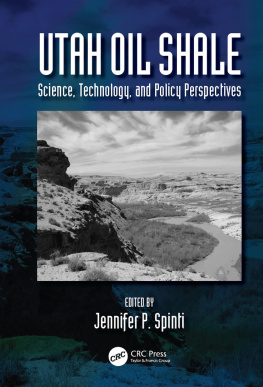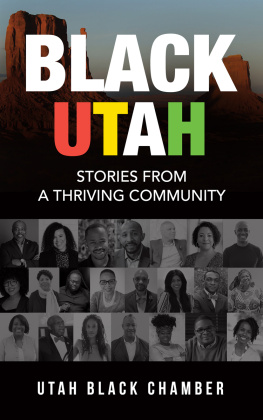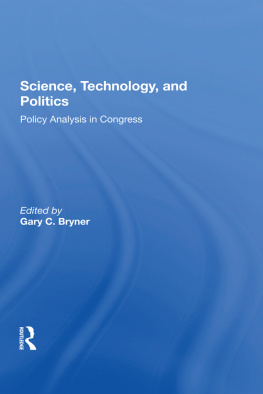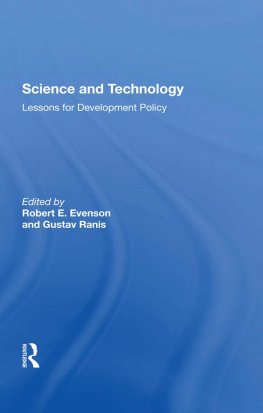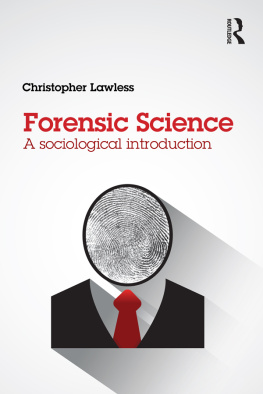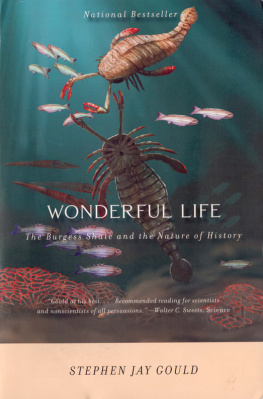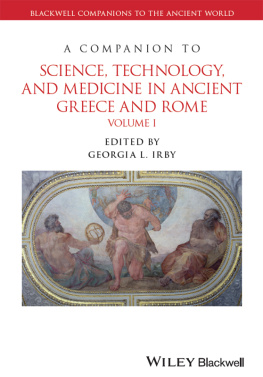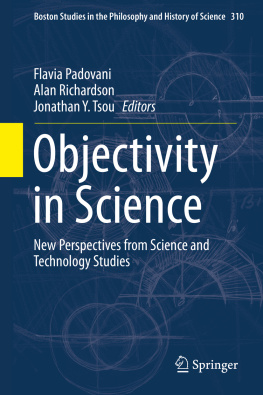Spinti - Utah oil shale: science, technology, and policy perspectives
Here you can read online Spinti - Utah oil shale: science, technology, and policy perspectives full text of the book (entire story) in english for free. Download pdf and epub, get meaning, cover and reviews about this ebook. City: Utah, year: 2016, publisher: CRC Press, genre: Romance novel. Description of the work, (preface) as well as reviews are available. Best literature library LitArk.com created for fans of good reading and offers a wide selection of genres:
Romance novel
Science fiction
Adventure
Detective
Science
History
Home and family
Prose
Art
Politics
Computer
Non-fiction
Religion
Business
Children
Humor
Choose a favorite category and find really read worthwhile books. Enjoy immersion in the world of imagination, feel the emotions of the characters or learn something new for yourself, make an fascinating discovery.
- Book:Utah oil shale: science, technology, and policy perspectives
- Author:
- Publisher:CRC Press
- Genre:
- Year:2016
- City:Utah
- Rating:4 / 5
- Favourites:Add to favourites
- Your mark:
- 80
- 1
- 2
- 3
- 4
- 5
Utah oil shale: science, technology, and policy perspectives: summary, description and annotation
We offer to read an annotation, description, summary or preface (depends on what the author of the book "Utah oil shale: science, technology, and policy perspectives" wrote himself). If you haven't found the necessary information about the book — write in the comments, we will try to find it.
Spinti: author's other books
Who wrote Utah oil shale: science, technology, and policy perspectives? Find out the surname, the name of the author of the book and a list of all author's works by series.
Utah oil shale: science, technology, and policy perspectives — read online for free the complete book (whole text) full work
Below is the text of the book, divided by pages. System saving the place of the last page read, allows you to conveniently read the book "Utah oil shale: science, technology, and policy perspectives" online for free, without having to search again every time where you left off. Put a bookmark, and you can go to the page where you finished reading at any time.
Font size:
Interval:
Bookmark:

UTAH OIL SHALE
Science, Technology, and Policy Perspectives
UTAH OIL SHALE
Science, Technology, and Policy Perspectives
EDITED BY
Jennifer P. Spinti

CRC Press
Taylor & Francis Group
6000 Broken Sound Parkway NW, Suite 300
Boca Raton, FL 33487-2742
2017 by Taylor & Francis Group, LLC
CRC Press is an imprint of Taylor & Francis Group, an Informa business
No claim to original U.S. Government works
Printed on acid-free paper
Version Date: 20160523
International Standard Book Number-13: 978-1-4987-2172-1 (Hardback)
This book contains information obtained from authentic and highly regarded sources. Reasonable efforts have been made to publish reliable data and information, but the author and publisher cannot assume responsibility for the validity of all materials or the consequences of their use. The authors and publishers have attempted to trace the copyright holders of all material reproduced in this publication and apologize to copyright holders if permission to publish in this form has not been obtained. If any copyright material has not been acknowledged please write and let us know so we may rectify in any future reprint.
Except as permitted under U.S. Copyright Law, no part of this book may be reprinted, reproduced, transmitted, or utilized in any form by any electronic, mechanical, or other means, now known or hereafter invented, including photocopying, microfilming, and recording, or in any information storage or retrieval system, without written permission from the publishers.
For permission to photocopy or use material electronically from this work, please access www.copyright.com (http://www.copyright.com/) or contact the Copyright Clearance Center, Inc. (CCC), 222 Rosewood Drive, Danvers, MA 01923, 978-750-8400. CCC is a not-for-profit organization that provides licenses and registration for a variety of users. For organizations that have been granted a photocopy license by the CCC, a separate system of payment has been arranged.
Trademark Notice: Product or corporate names may be trademarks or registered trademarks, and are used only for identification and explanation without intent to infringe.
Library of Congress Cataloging-in-Publication Data
Names: Spinti, Jennifer P, editor.
Title: Utah oil shale : science, technology, and policy perspectives / Jennifer Spinti, editor.
Other titles: Oil shale
Description: Boca Raton : CRC Press, 2017. | Includes bibliographical references and index.
Identifiers: LCCN 2016021017 | ISBN 9781498721721 (alk. paper)
Subjects: LCSH: Oil-shales--Utah. | Oil shale reserves--Utah. | Shale oils.
Classification: LCC TN858 .U83 2017 | DDC 553.2/8309792--dc23
LC record available at https://lccn.loc.gov/2016021017
Visit the Taylor & Francis Web site at
http://www.taylorandfrancis.com
and the CRC Press Web site at
http://www.crcpress.com
Contents
Jennifer P. Spinti and Philip J. Smith
John C. Ruple
John C. Ruple
Michael D. Vanden Berg and Lauren P. Birgenheier
Thomas H. Fletcher, Ronald J. Pugmire, Mark S. Solum, Charles L. Mayne, Anita M. Orendt, and Julio C. Facelli
Thomas H. Fletcher, Ronald J. Pugmire, Mark S. Solum, and Charles L. Mayne
Pankaj Tiwari, Josh Staten, and Milind Deo
Jan D. Miller and Chen-Luh Lin
Thang Q. Tran and John D. McLennan
Michal Hradisky and Philip J. Smith
Jonathan E. Wilkey, Jennifer P. Spinti, and Terry A. Ring
Kerry E. Kelly, John C. Ruple, and Jonathan E. Wilkey
The idea for this book came from a desire to archive in one scholarly work the results from nearly a decade of research at the University of Utahs Institute for Clean and Secure Energy (ICSE) relating to the creation of an industry for unconventional oil production in the United States. Research funding came from the U.S. Department of Energy (DOE) with research direction from DOE and from the Energy Policy Act of 2005. ICSE was to serve as an ongoing source of unbiased information to the nation surrounding technical, economic, legal, and environmental aspects of developing oil sands and oil shale resources. While ICSE research included work on both oil sands and oil shale, the material in this book is focused on oil shale with a specific emphasis on Utahs Uinta Basin. The Uinta Basin contains one of the largest oil shale resources in the United States, and much of the research was conducted on oil shale samples from there.
The ICSE research program was very broad, with researchers from four colleges and one bureau: the College of Engineering, the College of Law, the College of Science, the College of Mines and Earth Sciences, and the Utah Bureau of Economic and Business Research. The chapters in this book reflect the breadth of the research. Each chapter is authored by ICSE researchers who are experts in the chapter topic. In addition, collaborators from the Utah Geological Survey and Brigham Young University are coauthors on several of the chapters. The book is loosely organized by topic. The first chapter provides an introduction to the ICSE research program. analyzes each scenarios carbon footprint and ozone precursor emission and discusses these emissions in the context of Uinta Basin air quality and broader energy policy.
The authors of this book hope that the information contained herein will provide a stepping stone for the next generation of oil shale research.
Funding for the work contained in this book came principally from the Department of Energys National Energy Technology Laboratory (NETL) under award number DE-FE0001243. The authors thank NETL for their generous support and Robert Vagnetti, project director at NETL, for his guidance over the years. They also thank Dr. Olayinka Ogunsola at the Department of Energy for his leadership role and for his contributions to programmatic reviews.
Jennifer P. Spinti earned her PhD in chemical engineering from the University of Utah, Salt Lake City, Utah in 1997. Her doctoral work focused on the fate of nitrogen that remains in the char during pulverized coal combustion. From 1998 to 2009, she was a postdoctoral fellow and then a research associate in the Institute for Clean and Secure Energy (ICSE) at the University of Utah. During this time, she performed simulations of buoyancy-driven flows, including pool fires and flares, using high-performance computing resources as part of the Center for Simulation of Accidental Fires and Explosions.
She is currently a research associate professor in the Department of Chemical Engineering at the University of Utah. She served for six years as the assistant director of the Clean and Secure Energy from Domestic Oil Shale and Oil Sands Resources program within ICSE. She also organized the University of Utah Unconventional Fuels Conference and was engaged in research projects related to the development of oil shale and oil sands resources in Utahs Uinta Basin.
Lauren P. Birgenheier
Department of Geology and Geophysics
University of Utah
Salt Lake City, Utah
Milind Deo
Department of Chemical Engineering
University of Utah
Salt Lake City, Utah
Julio C. Facelli
Department of Biomedical Informatics
Font size:
Interval:
Bookmark:
Similar books «Utah oil shale: science, technology, and policy perspectives»
Look at similar books to Utah oil shale: science, technology, and policy perspectives. We have selected literature similar in name and meaning in the hope of providing readers with more options to find new, interesting, not yet read works.
Discussion, reviews of the book Utah oil shale: science, technology, and policy perspectives and just readers' own opinions. Leave your comments, write what you think about the work, its meaning or the main characters. Specify what exactly you liked and what you didn't like, and why you think so.

